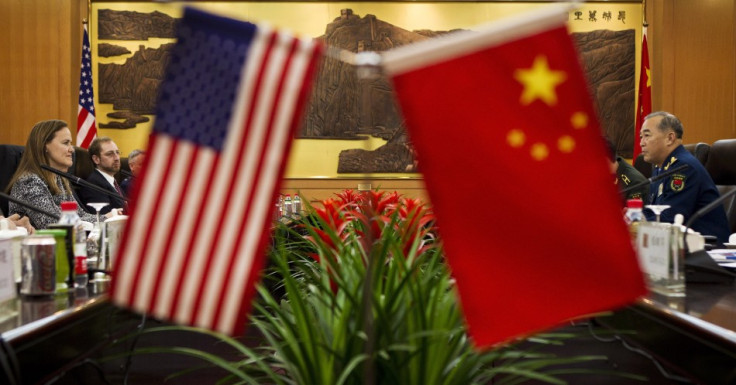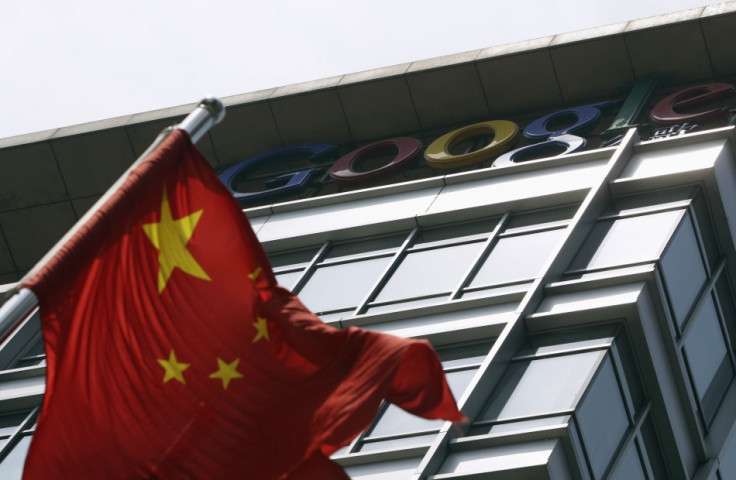2011 Year of the Hacker: How China Became the World's Cyber Scape-Goat

As 2011 comes to a close the International Business Times UK takes a hindsight look examining how and why the red giant China became synonymous with state sponsored hacking.
Google vs China
Though China has always garnered the world's suspicion when it comes to state sponsored hacking, the country's credibility reached new lows when search giant Google accused it of targeting its popular Gmail service.
The original attack, while speculated to have happened at the start of the year, was only confirmed by Google in June, 2011.
Targeting the accounts of U.S. Government officials, journalists and public opponents of the Chinese Government, the attack was listed as "a deliberate attempt" by the country to illegally spy on its enemies.
In its subsequent report Google went on to confirm that it had traced the attack to the Shandong Province in central China. The region contains the same six People's Liberation Army's technical reconnaissance bureaus and a technical college suspected of playing a role in a similar attempt on Google's source code enacted back in 2009.
Following news of the attack numerous defence analysts have since gone so far as to suggest that the city's technical colleges may in fact be a government funded hacker training camps - an allegation China vehemently denies.
Operation Shady RAT

Suspicion regarding China's online activities returned in August after security company McAfee uncovered Operation Shady RAT. The operation was uncovered after researchers stumbled upon logs of the attacks while reviewing a command and control server found during its 2009 investigation into defence company data breaches.
The operation's laundry-list of victims included the United States, Taiwanese, Indian, South Korean, Vietnamese and Canadian governments. The report also highlighted the United Nations (UN), International Olympic Committee (IOC), the World Anti-Doping Agency and numerous tech companies - some with high-profile military contracts - as other targets.
In its subsequent report McAfee highlighted its belief that the intrusions were part of ongoing campaign going back at least five years, perpetrated by a "state actor" -- commonly assumed to mean China.
Later while speaking to Reuters, Jim Lewis, a cyber expert with the Center for Strategic and International Studies commented on Operation Shady Rat: "Everything points to China. It could be the Russians, but there is more that points to China than Russia."
The Chamber of Commerce
More recently, following reports that Chinese hackers had penetrated the U.S. Chamber of Commerce's security, scrutiny again fell on the Chinese government Wednesday.
The accusations arose after The Wall Street Journal reported that the U.S. Chamber of Commerce had fallen victim to a Chinese cyber-attack back in 2010. The report went on to allege that the hackers were able to access information about the institution's operations and three million members.
Citing a number of unidentified sources "familiar with the matter" The Wall Street Journal reported that, though the operation had been discovered and "shutdown" in May 2010, the amount and nature of the data compromised in the hack remains unknown.
Despite the lack of confirmed information, the Wall Street Journal went on to report that its sources had clarified U.S. authorities were working under the assumption the attack stemmed from a group with ties to the Chinese government.
China Claim Innocence

Though China have what at best can be described as a guarded approach to western media, the country has always denied any allegations of state sponsored hacking.
Following Google's comments Chinese spokesman Hong Lei commented: "Blaming these misdeeds [the cyber attack on Google] on China is unacceptable. "Hacking is an international problem and China is also a victim. The claims of so-called support for hacking are completely unfounded and have ulterior motives."
Most recently, following the Chamber of Commerce attack - though at the time of writing, the Chinese London Embassy had not responded to the International Business Times UK's request for confirmation - speaking to Reuters, Chinese Foreign Ministry spokesman Liu Weimin re-affirmed the country's claims of innocence..
"There's nothing to be said about the baseless whipping up of so-called hacking and it won't come to anything," Reuters reported Weimin as saying. "Chinese law bans hacking."
© Copyright IBTimes 2025. All rights reserved.





















